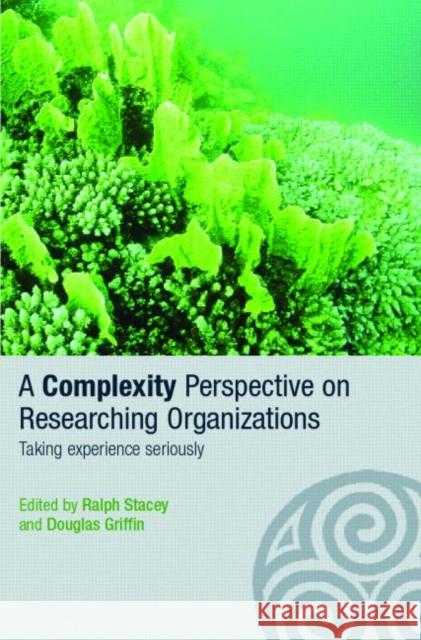A Complexity Perspective on Researching Organisations: Taking Experience Seriously » książka
A Complexity Perspective on Researching Organisations: Taking Experience Seriously
ISBN-13: 9780415351317 / Angielski / Miękka / 2005 / 224 str.
A Complexity Perspective on Researching Organisations: Taking Experience Seriously
ISBN-13: 9780415351317 / Angielski / Miękka / 2005 / 224 str.
(netto: 246,17 VAT: 5%)
Najniższa cena z 30 dni: 236,70
ok. 16-18 dni roboczych.
Darmowa dostawa!
The perspective of complex responsive processes draws on analogies from the complexity sciences, bringing in the essential characteristics of human agents, understood to emerge in social processes of communicative interaction and power-relating. The result is a way of thinking about life in organizations that focuses attention on how organizational members cope with unknown as they perpetually create organizational futures together.
Providing a natural successor to the Editors' earlier series (Complexity and Emergence in Organizations) this series Complexity as the Experience of Organizing, aims to take this work further by taking very seriously the experience of organizational practitioners, and showing how taking the perspective of complex responsive process yields deeper insight into practice and so develops that practice.
In this book, all of the contributors work as leaders, consultants or managers in organizations. They provide narrative accounts of their actual work addressing questions such as:
· How does the work of the researcher actually assist managers when the uncertainty is so great that they do no know what they are doing yet?
· What does research in organizations actually achieve?
· If patters of human interaction produced nothing but further patterns of human interaction, in the creation of which we are all participating, is there a detached way of understanding organizations from the position of the objective observer?
In considering such questions in terms of their daily experience, the contributors explore how the perspective of complex responsive processes assists them to make sense of their experience and so to develop theirpractice. "A Complexity Perspective on Researching Organizations" offers a different method for making sense of experience in a rapidly changing world by using reflective accounts of ordinary everyday life in organizations rather than idealized accounts. The editors' commentary introduces and contextualizes these experiences as well as drawing out key themes for further research.
"A Complexity Perspective on Researching Organizations" will be of value to readers from amongst those academics and business school students and practitioners who are looking for reflective accounts of real life experiences of researching in organizations, rather than further prescriptions of what life in organizations ought to be like.











